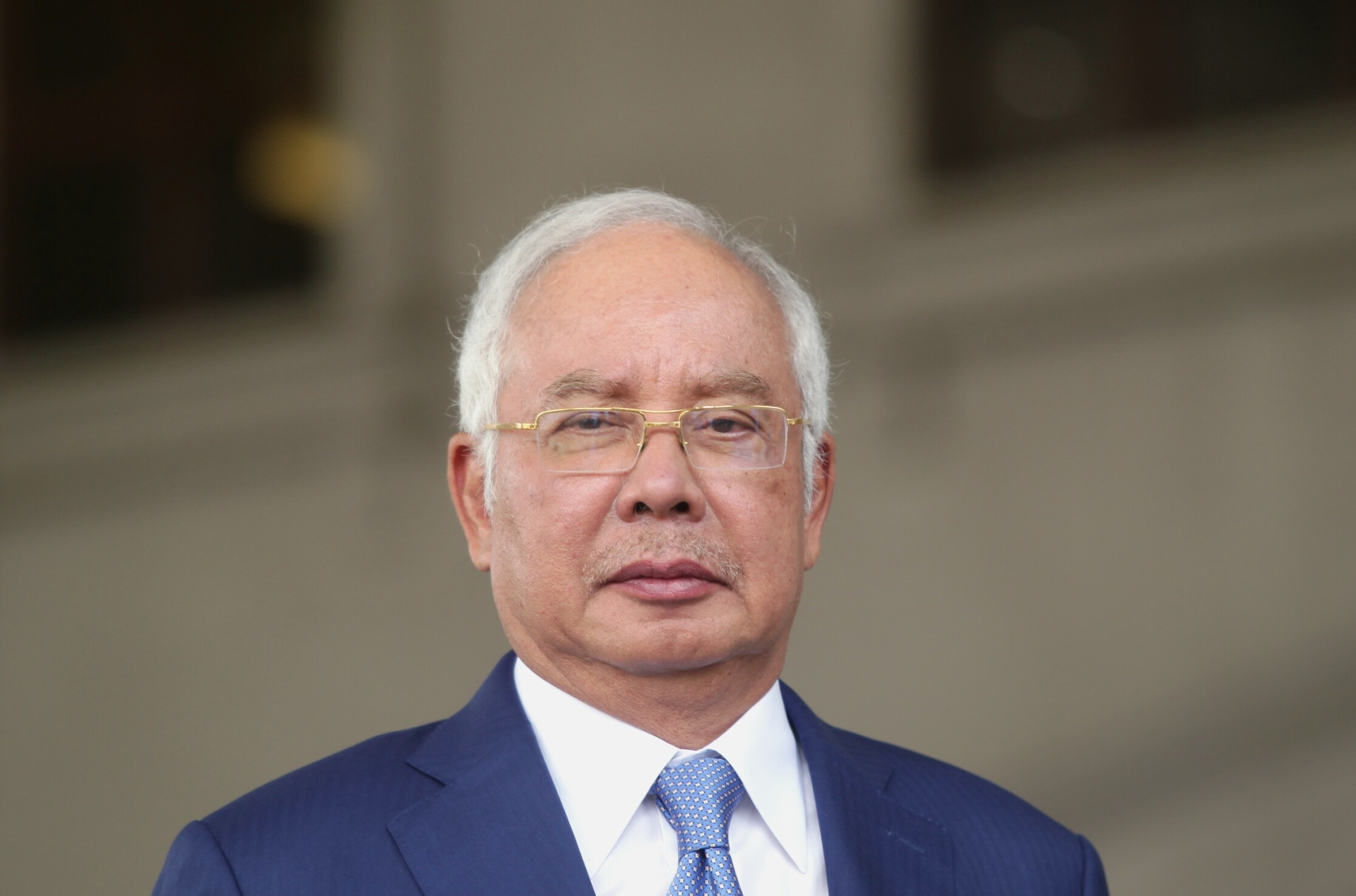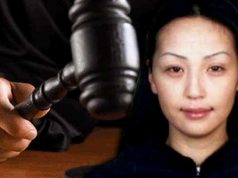 PUTRAJAYA, january 13 – The last time anyone saw Mongolian woman Altantuya Shaariibuu alive was in the company of two Special Action Unit (UTK) personnel, held the Federal Court when sentencing the duo to death Tuesday, for the murder of the 28-year-old translator and part-time model.
PUTRAJAYA, january 13 – The last time anyone saw Mongolian woman Altantuya Shaariibuu alive was in the company of two Special Action Unit (UTK) personnel, held the Federal Court when sentencing the duo to death Tuesday, for the murder of the 28-year-old translator and part-time model.
Federal Court judge Tan Sri Suriyadi Halim Omar, who delivered the unanimous decision said the two policemen’s presence at the house of political analyst Abdul Razak on Oct 19, 2006 when she was picked up, was confirmed by the evidence of the late P. Balasubramaniam, who was the private eye hired by Abdul Razak.
He said based on evidence, the court found that Chief Inspector Azilah Hadri had driven his former girlfriend’s car, together with her (former girlfriend), to go to Abdul Razak’s house.
He added that both Azilah and Corporal Sirul Azhar Umar, along with Altantuya and Azilah’s former girlfriend, Lance Corporal Rohaniza Roslan, thereafter returned to Bukit Aman (federal police headquarters in Kuala Lumpur).
Suriyadi said Sirul Azhar had initially sat in Rohaniza’s car until it reached a junction where he alighted and switched over to his car to return to Bukit Aman. “At Bukit Aman, PW7 (Rohaniza) left the respondents (Azilah and Sirul Azhar) with the deceased (Altantuya).
That was the last time anyone saw the deceased alive, and with the respondents,” he said in his decision. Suriyadi said by establishing that the two policemen were in the car together, and eventually ending up in Puncak Alam, not only provided the duo with time,
space and opportunity to formulate the criminal act but also made short shrift of Azilah’s assertion that his involvement ended at Bukit Aman and Sirul Azhar’s involvement ended outside Abdul Razak’s house.
He noted that records of the smart tag device taken from Sirul Azhar had also confirmed that his car had entered and exited the Kota Damansara toll plaza which was the natural route to Puncak Alam, the scene of the crime.
He also said a blood-stained slipper discovered in Sirul Azhar’s car and jewellery found in his jacket at his house could only lead to one irresistible conclusion – he retrieved them from the deceased at Puncak Alam.
“The slippers were left in the car whilst the jewellery was kept in the house…and the vehicle to transport these items has to be the second respondent’s (Sirul Azhar’s) car, adding that one had to be on Puncak Alam hill in the first place, in order to retrieve the items from the deceased.
He said the call logs which established that Azilah had made phone calls from Puncak Alam pointed to the irresistible conclusion that “he was up on the hills of Puncak Alam with Sirul Azhar.”
“The second respondent’s car has to be the very vehicle that was used to transport the respondents and the deceased to Puncak Alam,” said Suriyadi who added that by logical deduction, the two policemen must have been there earlier, to successfully and unerringly pinpoint the location of the crime scene with Sirul Azhar’s car as the mode of transport.
 The judge said that Azilah’s alibi that he was never at the crime scene at that point of time was unsustainable and was no better than a mere denial of the murder accusation. He said Azilah could not have been at Bukit Aman or Wangsa Maju at that material time because the call logs established that he had made phone calls at the crime scene.
The judge said that Azilah’s alibi that he was never at the crime scene at that point of time was unsustainable and was no better than a mere denial of the murder accusation. He said Azilah could not have been at Bukit Aman or Wangsa Maju at that material time because the call logs established that he had made phone calls at the crime scene.
“The discovery of the location of the scene of crime and certain items owned by the deceased came about because of the information obtained from Azilah and Sirul Azhar,” he noted.
He also said Azilah and Sirul Azhar had independently led the police to the crime scene which was a remote and isolated place and high up in the hills, where human remains were found at that place, subsequently proven to be that of the deceased.
“They are policemen from a special forces unit and are expected not to be easily intimidated, let alone there is no evidence adduced by them of having been intimidated, induced or tortured in any form by the investigating team,” he added. Suriyadi said Sirul Azhar’s unsworn defence statement did not carry much weight and was also inconsistent with other cogent evidence tendered in the court.
He said the discovery of the deceased’s belongings, the blood-stained slipper in Sirul Azhar’s car and her jewellery found in his house, and his car detected at the Kota Damansara plaza enroute to Puncak Alam, had totally discredited his unsworn statement that his involvement ended outside Abdul Razak’s house, thus leaving him with no defence.
Suriyadi said the non-calling of DSP Musa Safri as a witness and the non-tendering of the short messaging service (SMS) messages between Musa and Abdul Razak and Azilah had not caused unfairness to the respondents. Musa was at the time the aide-de-camp of Datuk Seri Najib Tun Razak, who was then deputy prime minister.
He said the court was satisfied the SMS were merely confirmatory in nature and at best, useful to Abdul Razak only as it merely confirmed the evidence adduced by two prosecution witnesses that Abdul Razak had a previous relationship with the deceased and he requested for help from Musa.
“As there is no serious dispute about this relationship, we are therefore, unable to see how much more details DSP Musa could produce that would contribute to the respondents’ defences.
“The calling of DSP Musa, let alone the tendering of the SMS, would not have affected the evidence pertaining to Abdul Razak’s previous relationship, one tiny bit,” he said. Suriyadi said the court also observed that Musa never instructed Azilah on how to assist Abdul Razak but merely, was told to meet up with him, and Azilah thereafter, had acted on his own discretion and sensibilities.
– BERNAMA










